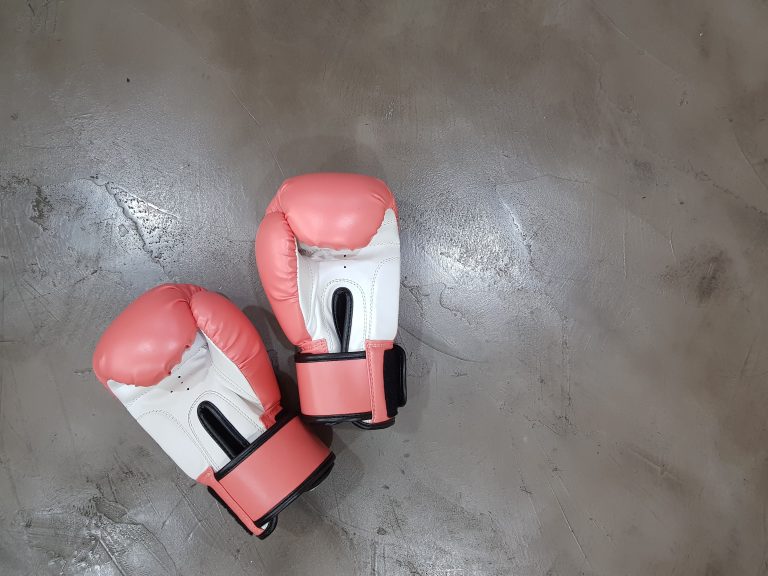What Can Karate Teach You?
Karate is an ancient martial art with roots in Japan. It emphasizes physical strength, mental discipline, and self-defense. Over the years, karate has become one of the most popular forms of martial arts globally, with millions of people participating in classes every day.
Besides learning how to kick and punch, karate also has many other benefits. In this blog post, we will explore what karate can teach you and how it can impact your life.
1. Self-Discipline
Karate teaches self-discipline, which is essential in all aspects of life. The discipline comes from the rigorous training required to master karate techniques. Through training, students learn the importance of focus, hard work, and patience. They learn how to set goals and work towards achieving them. Karate instills a sense of self-control and calmness that helps students deal with stressful situations outside the dojo.
2. Self-Defense
One of the main reasons people learn karate is for self-defense. Karate techniques are designed to give students the skills and confidence to protect themselves in dangerous situations. With regular practice, karate students learn how to handle confrontations physically and mentally. They learn how to assess the situation, defend themselves, and escape quickly and safely.
3. Respect and Humility
Karate teaches respect for oneself and others. Respect is a fundamental aspect of karate and is emphasized in every class. The student must respect their instructor, fellow students, and the art of karate itself. Respect goes hand in hand with humility. Karate students learn to be humble in their approach to training and their interactions with others.
4. Physical Fitness
Karate is an excellent form of exercise that promotes physical fitness. It involves a full-body workout that improves strength, flexibility, and endurance. The techniques require fast movements and quick reflexes, which enhance agility and coordination. Regular practice of karate helps to relieve stress, increase energy levels, and improve overall wellbeing.
5. Mental Focus
Karate requires a high level of mental focus, which can improve concentration and mental acuity. Students must learn to focus on their technique and movements to avoid injury and perform at their best. The discipline required in karate training enhances mental clarity and can help students in their academic or professional pursuits.
6. Goal-setting and Achievement
Karate teaches the importance of setting goals and achieving them. Regular training enables students to set realistic goals, work towards them, and achieve them. The sense of accomplishment and satisfaction that comes from achieving a goal can be a significant motivator, encouraging students to set new and higher targets.
What Can Karate Teach You?
The Benefits of Karate
Karate is a martial art that originated in Okinawa, Japan, and has been taught and practiced around the world for decades. It is known for its powerful strikes, efficient use of energy, and practical self-defense techniques. However, karate is much more than just a way to punch and kick. It can teach you many valuable life lessons and provide numerous health benefits. In this article, we’ll look at some of the most frequently asked questions surrounding this discipline.
What are the benefits of practicing karate?
Karate can improve your physical fitness, increase your self-confidence, and help you develop discipline and focus. Regular training can also teach you self-defense skills that can be useful in a variety of situations. Karate involves a lot of movement, which can improve your cardiovascular health, strengthen your muscles, and increase your flexibility.
Can karate help with self-defense?
Yes, karate is an effective martial art for self-defense. It focuses on practical and efficient techniques that can be used in a real-life situation. Students learn how to defend themselves against both armed and unarmed attackers, and how to control an opponent without causing undue harm. Karate training also helps develop the reflexes necessary to respond quickly and effectively in threatening situations.
Can karate help build self-confidence?
Yes, karate can definitely help build self-confidence. Practicing karate helps students develop a sense of achievement as they progress through the ranks and master new techniques. It also provides a safe environment for students to challenge themselves and push their limits, which can be empowering. Additionally, the skills and knowledge gained through karate training can give students a sense of security and confidence in their ability to handle challenging situations.
What skills can you learn from karate?
In addition to self-defense skills, karate can teach students valuable life skills such as self-discipline, focus, perseverance, and respect. Students learn to set goals and work hard to achieve them, which can translate to other areas of life such as work or school. Karate training also emphasizes the importance of respect for oneself and others, which can improve relationships both inside and outside the dojo.
What age is appropriate to start practicing karate?
Karate can be practiced by people of all ages, from young children to seniors. Most dojos have classes that are specifically geared towards children, and instructors are trained to work with students of all ages and abilities. Starting karate at a young age can be particularly beneficial, as it can help children develop good habits and a positive attitude towards physical activity.
How often should you practice karate?
To see the most benefits from karate, it is recommended to practice regularly. Most dojos will offer multiple classes per week, and students are encouraged to attend as many as they can. The amount of practice necessary will depend on individual goals and schedules, but as a general rule, practicing at least twice a week is usually sufficient to see progress.
How to Start Learning Karate?
Learning Karate can be a fulfilling experience that can help enhance your strength, flexibility, and mental and emotional well-being. If you’re interested in learning karate or exploring the lessons it has to teach, you’ve come to the right place.
In this article, we’ll take you through the step-by-step process of how to start learning Karate. Here are the steps that you need to follow:
Step 1: Find a Local Karate Dojo
The first step towards learning Karate is finding the right dojo. You can search for a local dojo by using Google or any other search engine, by looking in the phone book, or asking for referrals from friends or colleagues. Once you’ve found a dojo, it’s essential to check the dojo’s credentials to make sure it is an authentic and reputable dojo.
Step 2: Attend a Class or Observe a Lesson
To get a better understanding of what to expect from a Karate class, you can attend a free trial class, or observe a lesson to understand how classes are conducted. Observing a lesson can also help you understand the teaching style, and the level of intensity of the training.
Step 3: Choose the Right Instructor
Karate instructors have a significant influence on the quality of your learning experience. Therefore, it is essential to choose an instructor who has experience, is knowledgeable and skilled in Karate. Make sure that you have a good rapport with the instructor, and you are comfortable with the teaching style before joining the class.
Step 4: Expect Slow Progress at the Beginning
Like any learning process, progress in Karate is gradual, and it requires patience and practice. Don’t expect to become a black belt expert overnight. The first few months of a Karate class are focused on building a solid foundation of skills and techniques.
Step 5: Set Realistic Goals
To stay motivated, set realistic goals that you can achieve within a certain timeline. Your Karate instructor can help set goal-oriented benchmarks that will help you track your progress.
Step 6: Be Consistent
Regular practice is vital for mastering Karate techniques. Therefore, it’s essential to attend classes regularly and make it a regular part of your routine. Consistency is essential to achieving your goals.
Step 7: Practice Safety
Safety is a crucial aspect of Karate, and it’s essential to follow safety rules to avoid any potential injuries. Make sure to wear the appropriate clothing and protective gear during training.
Step 8: Cultivate Discipline and Positive Mental Attitude
Karate teaches discipline, respect, and a positive mental attitude. Use what you learn in class to cultivate these qualities in your daily life. Practice perseverance and mental toughness, and you will see improvements in all aspects of your life.
Conclusion
Karate is not only a way of learning self-defense but also a way to improve your overall mental, physical, and emotional well-being. Follow these steps to start learning Karate, and it will be a fulfilling journey that will enrich your life in many ways. Remember, Karate is not just a martial art; it’s a way of life.
Inhaltsverzeichnis






